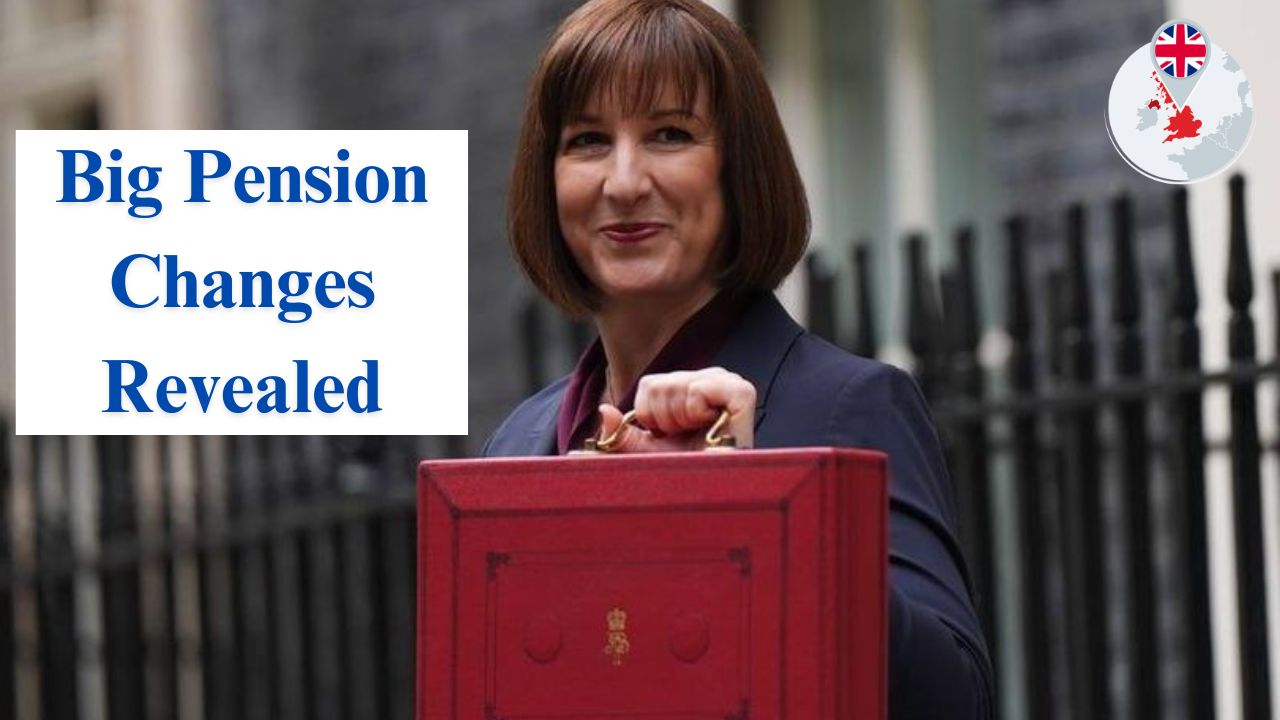Rachel Reeves, the Chancellor, is preparing to unveil significant pension reforms this week. These changes aim to direct investment into infrastructure and private businesses, a key component of Labour’s broader plan to revitalize the economy.
The reforms are expected to mark a major turning point in how pension funds are utilized, redirecting capital towards productive investments that can stimulate economic growth, modernize infrastructure, and create new job opportunities.
This initiative aims to harness the power of private pensions to drive long-term, sustainable development, ensuring the UK remains competitive on the global stage.
UK Upcoming Pension Changes Announcements Expected
In her first Mansion House speech in the City of London, Reeves will outline the next phase of Labour’s governmental agenda, following her October pledge to “fix the foundations” of the economy. Key aspects of her speech include:
- A focus on unlocking private sector investment, including financial services.
- Emphasis on reforming both the economy and public services.
- Highlighting opportunities for international partnerships in Europe, the Middle East, Asia, and the US.
- Commitment to a greener economy by channelling pension investments into renewable energy projects and sustainable infrastructure.
- Strengthening the UK’s financial position by promoting investments in high-growth sectors, including technology and healthcare.
Reeves is also expected to emphasize that the government is committed to creating a stable environment for businesses and investors. By providing more opportunities for private investment, the Labour government aims to foster an economic climate that encourages innovation and development across various industries. The focus on sustainability and international partnerships aims to position the UK as a leader in both economic growth and climate action.
Pension Changes at a Glance
The pension reforms are expected to free up billions for critical infrastructure and private businesses. According to Treasury sources, the proposed changes will emphasize growth through strategic private investments. By redirecting a portion of pension funds to infrastructure projects, the government hopes to address the longstanding issues of underinvestment in public assets and ensure that key sectors receive the funding they need to flourish.
| Key Elements of the Pension Reforms | Details |
|---|---|
| Unlocking private investment | Focus on financial services |
| Collaborations with international partners | Europe, Middle East, Asia, US |
| Growth through reform | Targeting economy and public services |
| Investment in green infrastructure | Renewable energy and sustainability |
| Focus on high-growth sectors | Technology, healthcare, and innovation |
These reforms are intended not only to boost the economy but also to provide stable returns for pension holders by investing in projects with significant growth potential. Reeves aims to create a system where pension funds contribute to building a stronger nation while ensuring financial security for retirees.

Hospitality Sector Concerns Over NIC Changes
The reforms will be announced amidst criticism from the hospitality sector, following alterations to employers’ national insurance contributions (NICs) announced in last month’s Budget. The changes include:
- Increased NIC Rate: Employers’ NICs will rise from 13.8% to 15%, which will increase the financial burden on businesses, especially those in the hospitality industry, which already operates on thin margins.
- Lower Threshold: The threshold at which employers begin to pay NICs will be reduced from £9,100 to £5,000 per year. This change means that businesses will have to pay NICs for more of their employees, adding to operational costs.
These changes are expected to generate over £25 billion for the Treasury. However, many hospitality businesses fear that the increased costs could result in job losses and reduced working hours, particularly affecting part-time and lower-paid workers. With the cost of living already rising, there are concerns that these changes will have a disproportionate impact on workers who rely on flexible and part-time roles to make ends meet.
Hospitality Industry Reaction
In a letter organized by UKHospitality, board members and 209 businesses, including JD Wetherspoon, IHG Hotels and Resorts, and Tortilla, expressed their concerns:
- Unsustainable Costs: The new NICs threshold is viewed as unsustainable, especially for lower earners. Businesses argue that the additional financial burden will make it difficult to maintain current staffing levels, leading to layoffs and reduced hours for employees.
- Impact on Flexible Working: The changes are expected to impact flexible working practices, which many older workers and parents rely upon. Flexible working arrangements are crucial for a significant portion of the workforce, particularly those with caregiving responsibilities or other commitments that require non-traditional work hours.
- Risk of Job Losses: Businesses warned of closures and job cuts within a year if the new NICs structure is implemented. Smaller businesses are particularly vulnerable, as they may not have the financial resilience to absorb the additional costs.
- Limited Ability to Raise Prices: Price increases of 6-8% would be required to cover the costs, yet businesses are unwilling to pass these on to consumers, given current economic conditions. With consumer spending already under pressure due to inflation, increasing prices could lead to a decline in demand, further exacerbating the challenges faced by the hospitality industry.
The hospitality sector also raised concerns about the timing of these changes, noting that the industry is still recovering from the effects of the COVID-19 pandemic. Many businesses are only just beginning to see signs of stability, and the additional costs associated with the NICs changes could derail this progress.
Proposed Solutions by Hospitality Sector
To mitigate the negative impact, the hospitality sector has proposed the following measures:
- New NICs Bracket: Introduction of a lower 5% NIC rate between the new £5,000 and the previous £9,100 thresholds. This would help to ease the financial burden on businesses while still contributing to Treasury revenues.
- Exemption for Part-Time Workers: A proposed exemption for taxpayers in the lower band working fewer than 20 hours per week to support part-time and lower-paid employees. This measure would protect the most vulnerable workers and help businesses maintain flexible work arrangements.
- Delayed Implementation: The sector has also suggested delaying the implementation of the NICs changes to give businesses more time to adjust. A phased approach could help reduce the immediate financial pressure and allow businesses to better prepare for the increased costs.
Treasury’s Response
In response to the backlash, Treasury Minister Darren Jones highlighted the broader benefits of the NICs changes:
“Bigger businesses are more able to bear some of the contributions needed to get the NHS back on its feet. This will help workers who are off sick to return to work, which is ultimately beneficial for businesses.”
Jones also pointed out that the Budget includes additional measures designed to promote growth and benefit the economy, despite the added tax contributions. He emphasized that while the NICs changes may present challenges for some businesses, the overall goal is to ensure a healthier workforce and improved public services, which will have long-term positive effects on the economy. By investing in the NHS and other public services, the government aims to create an environment where businesses can thrive, supported by a healthy and productive workforce.
Jones acknowledged that the hospitality sector’s concerns are valid but reiterated the importance of shared responsibility in funding public services. He argued that the larger businesses, which have greater financial resources, should contribute more to support the national infrastructure that benefits everyone.





